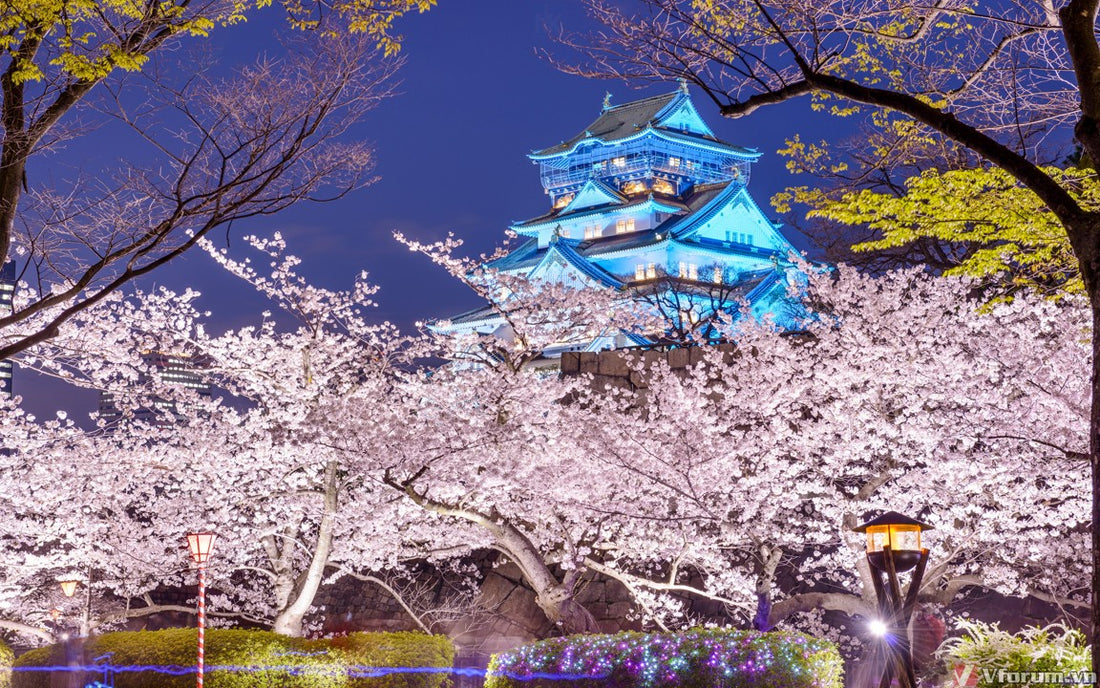
JAPAN - UNIQUE CULTURAL CHARACTERISTIC
Share
What unique cultural characteristics does Japan have? Why is it that when we mention Japan, we can't help but marvel at the unique cultural traits that can only be found here? Let's join CTS in exploring the fascinating aspects of Japanese culture!
1. Traditional Cultural Characteristics of Japan
Japanese culture has developed over thousands of years and possesses many unique characteristics, reflecting a deep respect for tradition while continually embracing innovation.
Tea ceremony culture (The way of tea)
Japanese tea ceremony, also known as Sado (茶道), originated from Zen Buddhism in the 12th century. The monk Eisai is credited with bringing tea from China to Japan and introducing it to Japanese monks. It was regarded as a beverage that enhanced focus during meditation.

The art of the tea ceremony is not merely about brewing and enjoying tea; it is a refined process that involves careful attention to every detail, from selecting the tea utensils and brewing method to each gesture during the tea enjoyment. Every step requires mindfulness and subtlety, expressing respect for the tea, for the participants, and for the tea-drinking space.

The philosophy of the tea ceremony guides people toward inner peace and an appreciation for the beauty of simplicity in life. Through each cup of tea, one learns to let go of worries, allowing the soul to gently merge with nature and find a deep sense of calm and tranquility within.
Japanese Traditional costume
Kimono is a famous traditional costume of Japan, also known as Wafuku (和服). The costume carries a strong cultural and historical imprint, and is a symbol of elegant and refined beauty in Japanese style. For hundreds of years, kimono has not only been a simple costume but also an embodiment of the philosophy of life, sophistication, and cultural identity of the Japanese people.

Each type of kimono has its own meaning, depending on the occasion and the age of the wearer. Kimonos for unmarried women have longer sleeves, symbolizing youth and femininity. Kimonos for married women, older women, or ceremonial kimonos will have different designs and colors, reflecting status and circumstances. The colors and patterns on kimono also have special meanings – for example, white kimonos are often worn at weddings, black kimonos for funerals, and bright colors or floral patterns are popular during spring festivals.
Japanese people often wear kimono on special occasions to show their respect for cultural traditions. Behind each kimono is a special story about the season, nature, and the gentle beauty of Japanese women.
Culinary quintessence (Food)
Japanese cuisine is diverse and sophisticated, featuring dishes such as sushi, sashimi, tempura and ramen. Japanese dishes always emphasize freshness, nutritional balance and beautiful presentation. In particular, they pay attention to the crops and often change the menu according to the season.

A famous dish not only in Japan but also all over the world is called sushi. With a unique combination of vinegared rice and fresh seafood such as tuna, oysters, abalone, salmon, shrimp, ... Sushi brings a rich, delicate flavor that is hard for diners to resist.

Tempura is also a great choice for your taste buds when enjoying this dish in Japan. Tempura is a combination of diverse ingredients such as shrimp, fresh seasonal fish, mushrooms, vegetables, etc. This dish is covered with a mixture of eggs, water and flour and then fried in hot oil. The crispy, delicious taste of tempura makes anyone who has ever enjoyed it unforgettable.
Traditional Festivals
Japan has many unique festivals throughout the year such as the Cherry Blossom Festival (Hanami), the Obon Lantern Festival, the Gion Matsuri Summer Festival, and the Hokkaido Ice and Snow Festival. Each festival has its own meaning, attracting a large number of people and tourists to participate.

The cherry blossom festival or Hanami festival is one of the traditional festivals of Japan. In Japanese, “hana” means flower and “mi” means short, the festival is simply an occasion to admire the blooming pink peach branches in the land of the rising sun. The time of the Japanese cherry blossom festival is also the time when people spend time to socialize, relax, reunite with their families and pray for a new year of peace and luck.

Obon is a Buddhist festival held in Japan every summer to honor ancestors and deceased loved ones. In Buddhism, it is believed that during Obon, the souls of the deceased visit their families before returning to the afterlife. The Obon festival ends with activities to help the souls return safely to the afterlife.
2. Spiritual values and unique life philosophy of Japanese people
Samurai Spirit and Bushido Philosophy
The Samurai spirit and Bushido philosophy are powerful symbols of resilience and loyalty in Japanese culture. Although the Samurai class is no longer there, this spirit is still passed down and has become an important part of the Japanese character and way of life. Bushido emphasizes loyalty, honor and sacrifice, influencing every aspect of Japanese life, from work to social behavior. Although modern society has changed, this spirit is still maintained in aspects of Japanese people's daily life and work.
Culture of hard work, discipline and Kaizen Spirit
The Japanese work culture is a symbol of diligence, discipline and dedication, recognized and admired by the world. Not only a responsibility, for the Japanese, work is also a source of pride and loyalty, a way for them to contribute to the community and society. Diligence and discipline are deeply ingrained in the way of life and work philosophy, creating the typical values of the Japanese.

The spirit of "kaizen" - meaning "continuous improvement" - has become a guiding principle for many Japanese businesses, promoting constant innovation and perfection in every detail, even the smallest. This spirit of perseverance and continuous improvement of quality not only creates sustainable success for Japanese corporations but also becomes a source of pride and identity in the country's work culture. In addition, Japanese people are always dedicated and loyal to their work. From the concept of "a job for life," many Japanese people always try to stick with and develop their careers at one company. This is a testament to their dedication and commitment to their work, to the company and to the development of society.
Respect and etiquette in everyday behavior
In Japanese culture, respect and courtesy are fundamental values, valued and maintained through many generations. The Japanese are famous for their refined and polite behavior, reflecting respect and gentleness in all relationships. It is not only an external expression but also a philosophy of life, the way the Japanese show respect for others and the community.

Bowing is an important part of Japanese etiquette, expressing respect, gratitude, and humility. There are many types of bows with different depths and meanings, from a light bow for everyday greetings to a deep bow to show respect or a sincere apology. For the Japanese, bowing is not only polite but also a symbol of respect and carefulness in communication. In addition, the use of honorifics in communication is also emphasized, helping to maintain harmony and etiquette in social relations.

Respect and courtesy in Japanese culture are clearly shown in small gestures and actions in daily life. When eating, Japanese people will sit together, invite and enjoy the food together, and give compliments to the person who prepared the meal. When praising or thanking, Japanese people often show a humble attitude, sometimes gently denying so as not to make others feel awkward. This politeness in speaking and behaving helps create a harmonious, pleasant and trustworthy atmosphere.
Japanese people highly value quietness in public, for example, not talking loudly on the train or on the phone in crowded places to avoid disturbing others. When giving gifts, they always wrap them carefully and do not open them right in front of the giver to maintain politeness. Even when taking the elevator, Japanese people keep the rule of standing in the right place, giving priority to the elderly or people in high positions.
Japan is a country with a strong Eastern cultural imprint, where every tradition, festival, and philosophy of life reflects depth and sophistication. From the art of tea ceremony, kimono, exquisite cuisine, to the Samurai spirit and serious work culture, Japanese culture has left a deep impression on people and tourists around the world. Discovering Japan is a journey to learn about the intersection between tradition and modernity, as well as to feel the priceless spiritual values that the Japanese always cherish and maintain.
